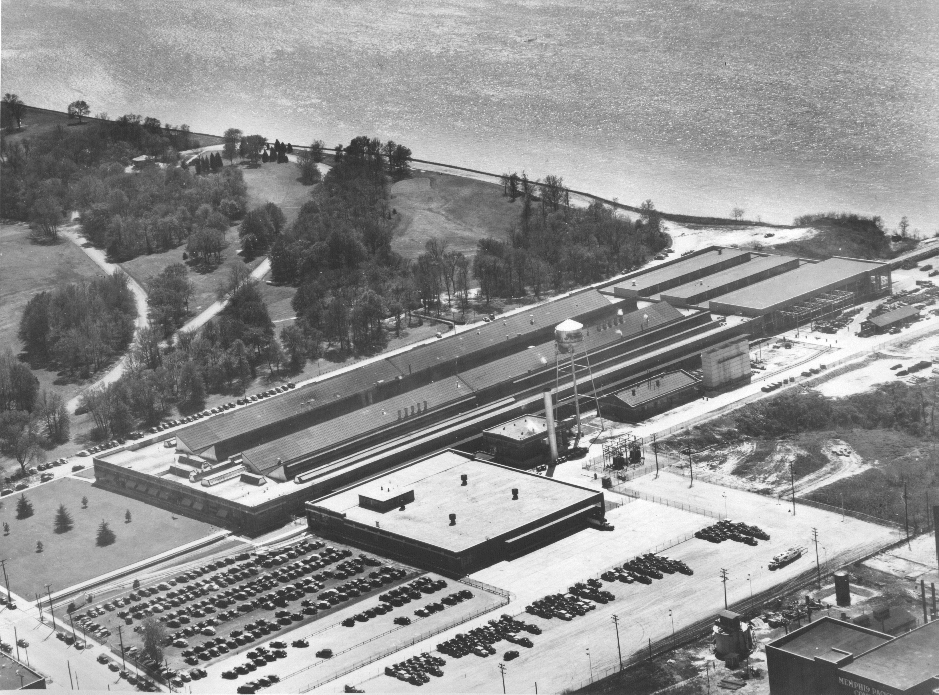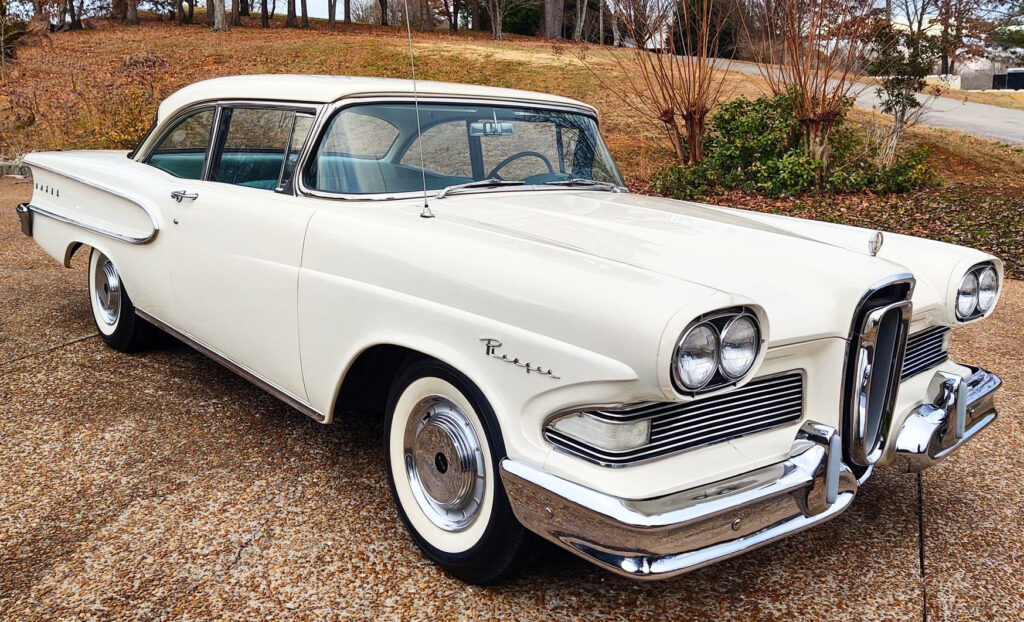Gone and forgotten:


By Bill Carey
I read an article the other day that said Tennessee “got into the car manufacturing business in 1983, with the arrival of the Nissan plant.” This reminded me of something I’ve written and said many times: The most forgotten factory in Tennessee history is Memphis’ Ford assembly plant.
From 1914 until 1958, Ford was one of the highest paying manufacturers in the state. Like assembly plants today, the plant didn’t make car parts, but it put together parts and tires that had been made elsewhere then delivered to Memphis, mainly by rail and river.
After leaving its original Union Avenue building in 1924 for a much larger plant two miles south of downtown Memphis, Ford grew to have more than 1,200 employees by the late 1920s. Some of them bought small houses in the neighborhood that was developed near the factory, a subdivision which was and still is known as Fordhurst. (However, a detailed story by Memphis Heritage Inc. maintains that Fordhurst was not successful because most of the Ford employees chose to buy homes else where.)
When the plant started, Ford made only one car, that being the Model T. Memphis’ 250,000-square-foot plant made more than 350 Model T’s per day in the 1920s. It continued to make cars in the 1930s as the company released new models such as the deluxe touring sedan and the deluxe coupe.
During World War II, new car production was brought to a halt because rubber was in short supply. Ford shifted its Memphis plant to make Pratt and Whitney aircraft engine parts and, like many Tennessee factories, hired a lot of women to work the lines. After the war, the plant underwent a 75,000 square foot expansion and was producing cars and trucks again by 1946.
Memphis’ Ford plant continued to thrive through most of the 1950s. It was a high-profile, union employer whose employees gave tours to visitors and school groups and contributed to local fund drives. Then, in 1956, Ford began investing $250 million in a sedan known as the Edsel. Marketed as the “car of the future,” the Edsel was one of the most colossal failures in American business history.
In May 1958, Ford announced it would close the Memphis plant and lay off the approximately 1,400 employees there. The company claimed the move was being taken in the name of corporate efficiency, but the United Auto Workers blamed it on the Edsel.
“After nearly half century of blood, sweat, and tears, all of it from the boys on the line, the final payoff comes June 6, when ‘Mr. Ford’ says ‘Shut her down and lock the doors,’” said an ad bought by the U.A.W. Local 903. “The cold hard truth of the matter is that this shutdown is the price we have to pay for somebody’s $250 million blunder.”
On June 6, 1958, the 1,573,709th and last Ford vehicle ever made in Memphis rolled off the assembly line. A few days later, many of the former Ford employees had a rather subdued picnic, paid for out of union dues. A lot of the laid-off workers said they had found new jobs, some said that they had “irons in the fire,” and others talked about moving.
Today these workers, and their factory, are a blind spot in the world of Tennessee history. The Tennessee Encyclopedia of History and Culture has articles about Nissan, Saturn, and about the short-lived (and tiny) Marathon Car Factory in Nashville, but none on the Memphis Ford plant.
Part of the problem is that the state government officials involved in Nissan’s recruitment in the late 1970s – most notably Governor Lamar Alexander and former Nissan executive Marvin Runyon – didn’t seem to know the Ford plant ever existed.
In 1999, I researched the Nissan recruitment for the book Fortunes, Fiddles, and Fried Chicken: A Nashville Business History. At that time, both Alexander and Runyon told me there they didn’t think there had been an automobile assembly plant in Tennessee before Nissan. I don’t think they knew about the Memphis Ford factory, and it didn’t matter to them, because by the late 1970s Tennessee had no car industry.
I do want us to remember Memphis’ Ford plant. If nothing else, because people in East and Middle Tennessee like to disparage and disregard West Tennessee. It also makes me sad to think of 1,500 people losing their jobs and the last Ford rolling off the assembly line in 1958.
Bill Carey is the founder of Tennessee History for Kids, a non-profit organization that helps teachers cover social studies.




